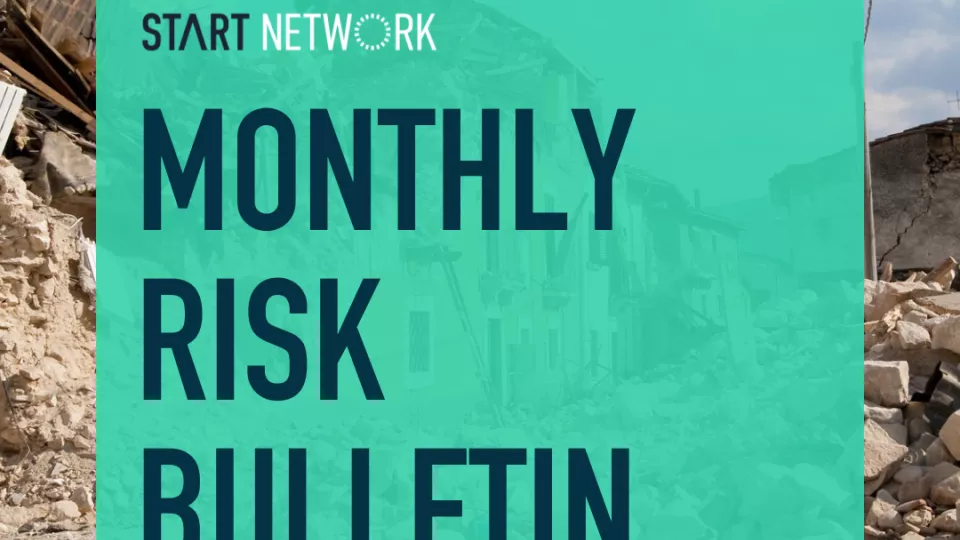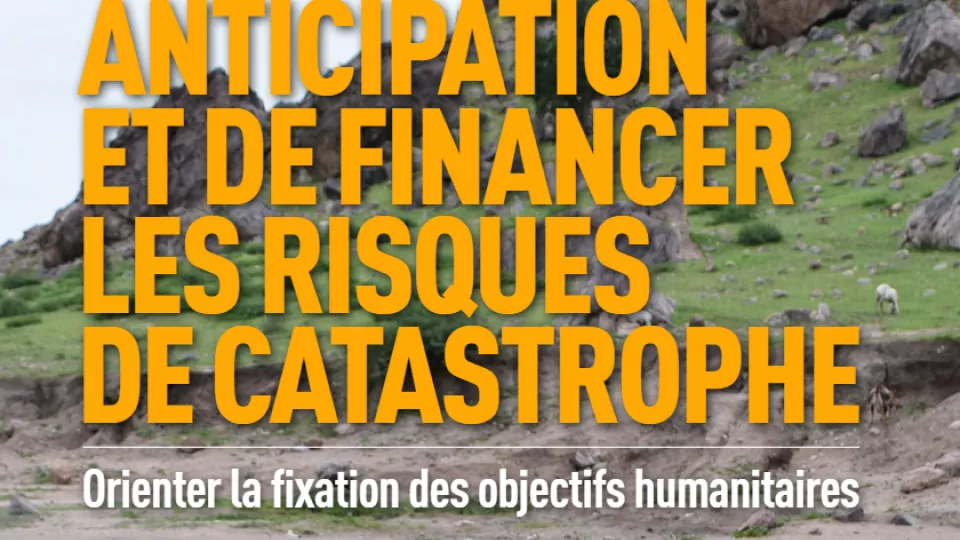
MONTHLY RISK BULLETIN ISSUED: DECEMBER 2022
The Start Fund monthly risk brief reports on new, emerging, or deteriorating humanitarian emergencies which are classified as under the radar

The Start Fund monthly risk brief reports on new, emerging, or deteriorating humanitarian emergencies which are classified as under the radar

L’action humanitaire proactive et fondée sur l’évaluation des risques suscite un intérêt croissant, car elle permet d’apporter une aide plus rapide, plus efficace et plus digne aux communautés exposées aux crises. Les demandes de mise en œuvre à grande échelle de ces approches ont mis en exergue l’inadéquation des niveaux actuels de financement de l’action par anticipation et du financement de crise préétabli, ainsi que l’importance de fixer des objectifs qui permettent de mesurer les avancées. Néanmoins, ces objectifs varient considérablement, de même que ce qui constitue une ambition réaliste. Dans le cadre des crises qui bénéficient d’une aide internationale, quelle est la possibilité d’élaborer des plans, des financements et, dans la mesure du possible, de mettre en œuvre des mesures d’atténuation avant la survenue de l’événement proprement dit? La communauté humanitaire a pour défi de mettre à contribution les sciences et technologies actuelles pour nous permettre de prévoir et de nous préparer à l’escalade des risques de crise, tout en conservant les capacités pour faire face à des événements très complexes, interconnectés et/ou sans précédent. Ce document vise à fournir un cadre plus clair pour comprendre ce qui peut être anticipé, et dans quelle mesure. L'analyse de ce rapport montre qu’il existe une opportunité significative dans le cadre des crises humanitaires pour tirer profit des systèmes d’information sur les risques actuels ainsi qu’un vaste potentiel pour les risques de crise qui ne sont pas encore traités par les systèmes techniques existants. De plus, le rapport reconnaît qu'il y a des limites à la mesure dans laquelle les crises peuvent être prédites et le financement peut être organisé à l'avance. Cela renforce la nécessité que les mesures d'anticipation et de financement des risques de catastrophe soient complétées par d'autres mécanismes de réponse pendant et après une situation de crise et d'être adaptées aux crises et aux contextes individuels. Lire le rapport complet ici ENG FR ES

This note should concisely provide an overview of the crisis, highlight the needs of the affected people, and explain the appropriateness of the Start Fund to respond. The alert note is a means of providing information to the Start Network to enable decision-making. It is important to understand the predicted impact and the kind of anticipation actions that can be taken to mitigate this impact.
This handbook details the procedures which govern the use and allocation of the Start Fund.

Start Network has launched Information is Power: Connecting Local Responders to the Risk Information that they Need, a paper which calls for organisations to connect people at risk of crises with forecast information, which can help to save lives, cut the costs of emergency response, and build more resilient communities.
WHAT DOES GECARR PRODUCE? The output is a short document analysing the country context and needs, key actors, sources of cohesion and division (connectors and dividers) and likely future scenarios. It includes internal and external recommendations that inform organisational strategies, operational and security plans, programme designs and external messaging.
The monthly risk briefing provides information on global weather, human and health events where members may consider using the Start Fund Anticipation process.
The monthly risk briefing provides information on global weather, human and health events where members may consider using the Start Fund Anticipation process.
The monthly risk briefing provides information on global weather, human and health events where members may consider using the Start Fund Anticipation process.
The monthly risk briefing provides information on global weather, volcanic, human and health events where members may consider using the Start Fund’s Crisis Anticipation Window. It reports on new, emerging or deteriorating situations; therefore, ongoing events that are considered to be unchanged are not featured and risks that are beyond the scope and scale of the Start Fund are also not featured. This monthly risk briefing is collated by the Start Network Anticipation team using information from academia and research institutes, government departments, ACAPS, global risk indexes, risk information provided by Start Members and their partners, and the media. Key risks are shared and collated each month with FOREWARN input.